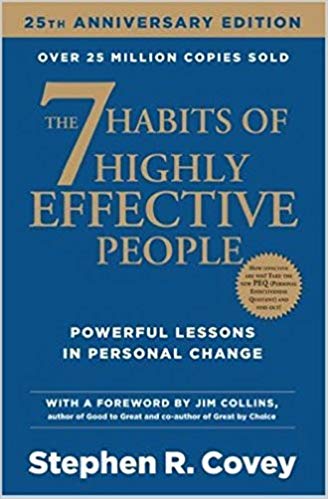

This article is an excerpt from the Shortform summary of "The 7 Habits of Highly Effective People" by Stephen Covey. Shortform has the world's best summaries of books you should be reading.
Like this article? Sign up for a free trial here .
How did millennials become the burnout generation? How do millennials compare to other generations in terms of health and well-being outcomes?
Millennials (born between 1981 and 1996) are the most stressed-out generation, both physically and emotionally. They have the highest rates of hypertension, depression, anxiety, and even suicide.
Continue reading to learn how the focus on efficiency is causing millennial burnout.
Why Are Millennials So Stressed?
Despite their reputation for being entitled and self-absorbed, millennials are plagued by expectations that they should work tirelessly and efficiently to drive results, and guilt when they don’t. Efficiency is appealing because it maximizes output in the short term—but it leads to burnout in the long term.
In his book The 7 Habits of Highly Effective People, Stephen Covey calls this equilibrium between short-term output and long-term endurance the P/PC Balance, illustrated by Aesop’s fable of the goose that laid golden eggs.
- P is the production of the results you want, represented by the golden eggs.
- PC is the production capability, or the thing that produces the results, which is the goose.
Sometimes it’s hard to recognize when you’re squeezing the goose too hard until it’s too late. So, let’s examine what happens when you lose P/PC balance in your life and in your company.
As an individual, wearing out your goose can manifest as burnout. Millennials have even been dubbed the “burnout generation.”
Many Millennials are now facing the consequences of their breathless pace, and it’s leaving them feeling like that dead goose.
- Physically, Millennials have higher rates of hypertension, high cholesterol, and other conditions that paint a picture of a generation whose health is deteriorating more rapidly than previous generations
- Mentally and emotionally, levels of depression and anxiety among young people is at an 80-year high.
- “Deaths of despair,” including overdoses and suicides, have recently risen more among Millennials than any other generation.
In a business context, killing the goose means prioritizing profits over employees’ talent development and general well-being. Succession management consultant Michael Timms has described how a profits-over-people approach creates a vicious cycle:
- Company leaders focus on output and profits, neglecting succession planning (identifying and grooming future leaders internally) and employee development.
- Due to the lack of planning, when an employee leaves, that worker’s manager and coworkers often have to carry that weight while management finds and trains a new hire.
- The heavy workloads mean workers don’t have time to do long-term planning and strategic tasks, which puts them in a reactionary cycle of meeting deadlines and putting out fires.
- Stressed and tired, employees become demoralized. Some leave the company, exacerbating the cycle for those left behind.
Meanwhile, when new employees are hired, rather than changing the atmosphere, they’re absorbed into it. They, too, become demoralized and soon leave.
Covey writes that successful companies not only build trust and loyalty with their customers, but also invest in their employees by offering good pay and benefits, creating a nurturing company culture, and providing professional development. The executives at these companies understand that employees hold the PC to make sales, provide high-level customer service, make quality products, and perform other tasks necessary to create profits (P).
———End of Preview———

Like what you just read? Read the rest of the world's best summary of "The 7 Habits of Highly Effective People" at Shortform . Learn the book's critical concepts in 20 minutes or less .
Here's what you'll find in our full The 7 Habits of Highly Effective People summary :
- How to prioritize the hundred tasks you have to focus on the one or two that really matter
- The right way to resolve every disagreement and argument
- How to avoid burning out and succeed over 20+ years






